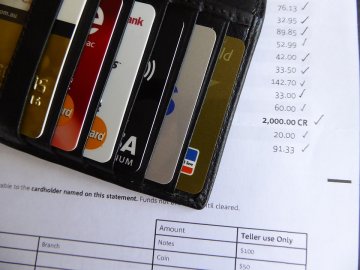A Simple Trick for Saving Money
 If you’re like most people then you have at least four or five friends whom you see very often and trust very deeply. Here is an easy way to save money without having to go by the bank.
If you’re like most people then you have at least four or five friends whom you see very often and trust very deeply. Here is an easy way to save money without having to go by the bank.
First, get an envelope. It should be a dark envelope that doesn’t allow light to pass through easily.
Second, take whatever spare money you have and divide it in half. This is money you have no plans for, no need. It’s just “pocket money”. Take one half of that money and wrap it in a piece of paper. Then put the wrapped money into the envelope.
Third, write a quick note on the envelope: “Please return this to [YOUR NAME] on [SOME DATE IN THE FUTURE]”. Anywhere from 1-3 months is good. If you wait longer than that you and your friend are likely to forget.
Finally, give the envelope to a friend. Don’t tell them what is in it. Just ask them to keep it in a safe place for you.
Now, what is the point of this? If you do it regularly, say 2-3 times a month you’ll gradually reduce the amount of money you spend on needless things. In a few months your friends will be holding a tidy little sum of money for you.
When they return the envelopes you should take them to the bank and put them into a savings account. Better yet, find a local credit union and open an account there. If you are like most people you handle your banking through a regular bank, so opening up a credit union savings account helps keep temptation at bay.
People tell themselves that saving money is hard. What is true is that you are living on a budget today that ensures you spend all the money you make, even though some of that money goes for knick knacks, fast food meals, and other luxuries that you don’t really need. It’s easier to cut back on these kinds of unnecessary expenses if you put your money where you cannot spend it.
You should only do this with small amounts that you won’t miss and you should only ask 3-5 friends to hold the envelopes for you. Keep a calendar so that you know when to collect and from whom.
The whole point is to teach yourself to live on less money. When you are ready you can start budgeting regular deposits into your new savings account. You’ll thank yourself for making at least a small effort in the beginning because all those little deposits do add up over time.


